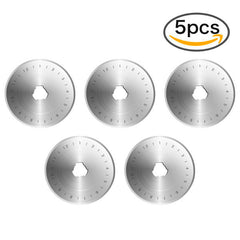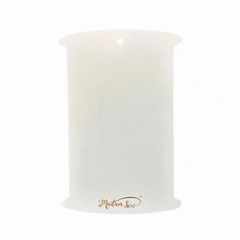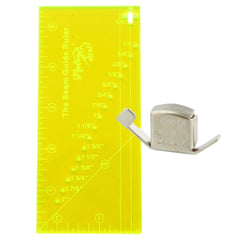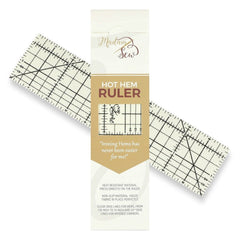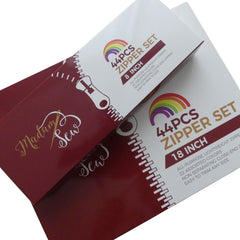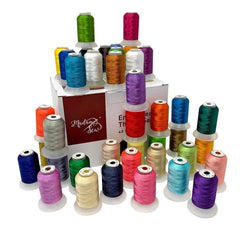How to Make a Bottle Holder
Not all bags come with a bottle holder or a convenient place to store a water bottle. When I realized I needed one for my laptop bag, I decided to sew it myself—and now I’m sharing the full tutorial with you!
This bottle holder makes a great DIY gift for a friend or even for Father’s Day. You can attach it to any bag or even to a belt. And if you attach two loops instead of one, you can turn this into a cute little purse-style bottle holder.
There’s no downloadable pattern needed—you can make this in any size you like. Just follow the instructions below and customize the bottle holder to fit your bottle and match your style.
1. Supplies and Tools
You will need fabric for the lining, fabric for the outside of the bottle holder, and some fusible stabilizer. You will also need matching thread, scissors, a sewing machine, a marker, a ruler, clips and/or pins and a hot iron. A tool to turn tubes (like the tube turner set from Madam Sew :-) super helpful) can come in handy, as well as a seam roller (optional but handy for pressing, also by Madam Sew).
To clip the bottle holder to your bag or belt, use a carabiner (those metal climbing-style clips you can get at outdoor or hardware stores).
2. Bottle Measurements
You can make this holder for any type of water bottle or thermos. You’ll need to measure:
1. Circumference – around the widest part of the bottle
2. Diameter – across the bottom
3. Height – up to where the bottle starts to narrow at the neck
You’ll use these measurements to cut five fabric pieces, made from just three different shapes:
A. The two main fabric pieces for the ‘body’: one outer fabric piece and one piece for the lining
• Long side = circumference of the bottle + seam allowance + a little extra so it isn’t too tight
• Short side = height of the wide part of the bottle + seam allowance
B. The two pieces for the bottom
• Width = 1 inch + ¾ inch (which is two times ⅜ inch) seam allowance
• Length = diameter of the bottle’s bottom + 1 inch
C. The piece for the loop
• 1 ½ inch + ¾ inch (which is two times ⅜ inch) seam allowance
My bottle is rather small, it can hold about 17 ounces of liquids. Here are the sample measurements:
• Circumference: 9 ¼ inches
• Height wide part: 5 inches
• Diameter: 2 ¾ inches
3. Cutting Instructions for the Different Pieces
I’m using ⅜ of an inch seam allowance everywhere in this project, except if otherwise stated.
Fabric Piece A (main body)
• Cut 2: 1 lining & 1 outer
• Rectangle:
‣ L: circumference + ¾ inch seam allowance + ½ inch extra
‣ W: height + ¾ inch seam allowance
Fabric piece B (bottom strip)
• Cut 2: 1 lining & 1 outer
• Rectangle:
‣ L: diagonal of the bottle + 1 inch seam allowance
‣ W: 1 inch + ¾ inch seam allowance
Fabric piece C (loop)
• Cut 1
• Rectangle: L x W
‣ L: 6 inches
‣ W: 1 ½ inch + ¾ inch seam allowance
Also cut stabilizer for both the bottom strip and the loop and one big rectangular piece for the main body.
Example measurements, the ones I used for my bottle:
Piece A:
L: 9 ¼ + ¾ inch + ½ inch = 10 ½ inch
W: 5 + ¾ inch = 5 ¾ inch
Piece B:
L: 2 ¾ + 1 inch = 3 ¾ inch
W: 1 + ¾ inch = 1 ¾ inch
Piece C:
L: 6 inches
W: 2 ½ inches
4. Apply the Stabilizer
• Fuse the stabilizer to one of the strips for the bottom and to the loop
• Fuse the bigger piece of stabilizer to one of the main rectangular fabric pieces, preferably the outer fabric
5. Sew the Loop and Bottom Strip
1. Fold the strips of the loop in half lengthwise, right sides facing, and press.
2. Sew along the long edge and trim the seam if necessary.
3. Turn the strip right side out. Check out the Madam Sew tube turners to make this job easy and fast.
4. Press the strip flat.
5. Optional: Topstitch at ⅛ inch on both long edges.
Position the two strips of the bottom strip on top of each other, right sides facing. Sew along the two long edges. Repeat step 3-5 from the loop strip. You will have these two pieces you see in the image below when finished:
6. Attach the Strips to the Main Fabric
Now you will attach the strips to the main fabric. Use your outer fabric piece, not the lining.
Fold the strip for the loop in half and position the loop at the top edge, near the seam. This way, when worn, the seam faces inward. Sew the loop in place with a row of stitches at 1/4th of an inch from the edge.
To position the bottom strip, mark the midpoint of the opposite long edge, this is the bottom of your holder. Line up one end of the bottom strip ⅜ of an inch from the side edge so it will not get caught in the seam.
Line up the other end against the midpoint on the opposite side of where you positioned the first end of the strip. Your fabric piece probably will not be able to lay flat anymore, it’s normal at this step. You can still stitch it.
Make sure the distance between the seam (seam allowance not included!) and the strip edge is equal to the space in between the two strip ends. This way you are sure your strip will be centered nicely.
Sew both ends in place with ¼ inch seam allowance.
7. Assemble the Lining and The Outer Fabric
Position the interior fabric on the outside fabric. First sew the top and bottom seams, place the main fabric pieces right sides together, pin and sew two straight seams. The bottom seam won’t stay flat because of the strip you attached, but you should be able to sew the seam, just use enough pins.
8. Sewing the Two Side Seams, Lining and Outer Fabric
Turn the holder right side out through the open side seam and match the right side of the lining and outer fabric to sew the side seam. You will have to turn the fabric so you will get a “tube” shape. This is hard to explain. If you don’t get it, look at the bottle holder video that goes with this tutorial.
You will have to sew in a circle, which seems a bit unusual because the side seams are not circular but trust me, it will all turn out great. If you used a different fabric for the inside, make sure you position your turning hole in the inner fabric. Sew all around and leave a turning hole of about 2 inches in the lining fabric.
9. Finish the Bottle Holder
Turn the project right sides out, press the seams and close the turning hole with a ladder stitch by hand. When pressing is hard on a small project with intricate corners and curved edges, a wooden seam roller is a great solution to get crisp seams.
That’s it!
When you have reached this final step, your custom bottle holder is ready to use or to gift! Whether you're attaching it to a backpack, belt loop, or creating a hands-free mini carrier with two loops, this project is as functional as it is stylish. Once you’ve made one, you’ll probably want to make a few more for friends and family—trust me!
Thanks for following along, and happy sewing!
An
Blogging for Madam Sew
Download the Madam Sew Bottle Holder tutorial here












